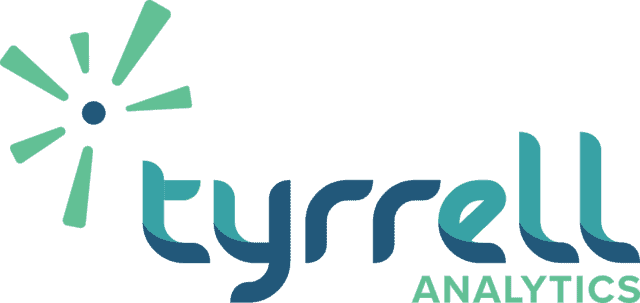Data strategies need to be robust and flexible enough to grow with an organization as it grows in size or expands its operations. They must also be able to accommodate changes in technology and customer needs. As such, scalability is a key factor when designing data strategies that will stand the test of time. By understanding how data can be used effectively today, organizations can use this knowledge to better prepare for tomorrow’s challenges.
Data strategies are an essential component of any organization’s overall business strategy. A data strategy outlines how an organization will manage, store, and utilizes its data to drive informed decision insights -making, maximize efficiency, and achieve business objectives. A well-designed data strategy provides a roadmap for data-driven decision-making, ensuring that all decisions are based on accurate, reliable, and timely data.

Scalability is a critical component of any data strategy. Scalability refers to an organization’s ability to efficiently process and analyze vast amounts of data as its data needs grow and evolve. A scalable data strategy enables seamless adaptation to changing demands, ensuring sustained business growth.
In this article, we will explore how Simaxx Analytics can help organizations build a scalable data strategy that enables data-driven decision-making, unlocks valuable, organizations can gain valuable and actionable information to make informed choices and drive their business forward.
One key aspect of data-driven strategies is the utilization of data insights to make informed decisions. By analyzing and interpreting relevant data, organizations can uncover patterns, trends, and correlations that can insights, and ensure sustained business growth.
Understand The Concept And Importance Of Data-Driven Strategies In Modern Business Environments.
Data-driven strategies play a vital role in the success of organizations today. These strategies revolve around the use of data to guide and inform various aspects of decision-making and operational processes. By leveraging the power of data provide valuable insights. These insights can guide strategic planning, identify opportunities for growth, and help optimize various aspects of the business, such as marketing campaigns, supply chain management, or customer experience.|
Data-driven strategies require a reliable data version of truth. This refers to a single, authoritative source of accurate, reliable, and timely data that all stakeholders within the organization can trust. Establishing a data version of truth ensures that decision-makers and other stakeholders have access to consistent and high-quality data, which forms the foundation for making reliable and well-informed choices. It involves implementing robust data governance practices, ensuring data quality and integrity, and employing efficient data management systems to enable easy access and utilization of data across the organization.
Data-driven strategies involve utilizing data insights to inform decision-making and improve business outcomes. These strategies require a reliable data version of truth, ensuring that all stakeholders have access to accurate and trustworthy data. By leveraging data-driven strategies, organizations can enhance their decision-making processes, optimize operations, and ultimately achieve their business objectives.
Significance Of Data Integration

By integrating data from disparate sources, organizations can break down data silos and eliminate the limitations of working with isolated datasets. This unified view allows for a comprehensive analysis of data, enabling organizations to identify correlations, trends, and patterns that might otherwise remain hidden. It also enhances the ability to perform advanced analytics and gain a more accurate understanding of the business landscape, customer behavior, and market trends. Ultimately, data integration empowers organizations to make data-driven decisions based on a complete and cohesive understanding of their data assets.
Simaxx Analytics, as a provider of powerful data integration capabilities, offers organizations the ability to seamlessly integrate data from various building systems. This integrated approach allows for better monitoring, control, and optimization of building performance, leading to improved energy efficiency, cost savings, and enhanced occupant comfort and safety. Simaxx Analytics’ data integration capabilities contribute to a robust data strategy, empowering organizations to harness the full potential of their data assets and drive meaningful outcomes.
Data Governance And Data Privacy
Simaxx recognizes the importance of data governance and provides comprehensive capabilities to support organizations in managing their data effectively. This includes data monitoring features that track data quality and integrity, compliance functionalities to ensure adherence to regulatory requirements, and data management tools for organizing and governing data assets. By using Simaxx data governance capabilities, organizations can maintain data accuracy, enhance data security, and demonstrate compliance with industry regulations, thereby establishing a solid foundation for their data strategy.
By implementing strong data governance practices, organizations can ensure the accuracy and reliability of their data. This involves monitoring data quality, identifying and resolving data inconsistencies or errors, and establishing data validation processes. Robust data governance also enables organizations to comply with regulatory requirements and industry standards, such as data privacy regulations or industry-specific compliance frameworks.
Data Insights
Data insights are the key to unlocking the value of data. Data insights involve using data to gain a deeper understanding of business processes, identify areas of inefficiency, and optimize operations. Simaxx provides powerful analytics capabilities, enabling organizations to gain valuable insights into their building operations, including energy consumption patterns, occupancy levels, and system performance. By leveraging data insights, organizations can make informed decisions that drive business growth and improve efficiency.
Aligning Roadmaps With Business Strategy
A data strategy roadmap serves as a crucial blueprint for implementing a scalable and effective data strategy within an organization. It is a strategic plan that outlines the specific steps and milestones an organization will undertake to achieve its data strategy objectives. By defining a clear roadmap, organizations can ensure that their data initiatives align with their overall business strategy and can adapt to evolving business needs.
Simaxx specializes in assisting organizations in developing comprehensive data strategy roadmaps tailored to their unique requirements. With Simaxx Analytics, organizations can benefit from their expertise and experience in navigating the complexities of data management and leveraging data as a valuable asset.
Simaxx develops a detailed roadmap that outlines the specific initiatives, projects, and timelines required to bridge the gap between the current state and the target state. The roadmap includes actionable steps for data integration, data governance, data insights, data infrastructure enhancements, and any other relevant components.
Energy Consumption
Energy consumption is a significant component of any building operations strategy. By monitoring and optimizing energy consumption, organizations can reduce costs and improve efficiency. Simaxx provides powerful energy monitoring capabilities, enabling organizations to gain insights into their energy consumption patterns and identify areas of waste. By using data insights, organizations can take steps to reduce energy usage and costs, improving their bottom line and reducing their environmental impact.
A well-designed scalable data strategy is essential for organizations looking to drive informed decision-making, unlock valuable insights, and ensure sustained business growth. Simaxx provides powerful data integration, data management, and analytics capabilities, enabling organizations to build a scalable data strategy that meets their business needs. By utilizing data insights, organizations can optimize their operations, reduce costs, and improve efficiency, driving business growth and improving their bottom line.

